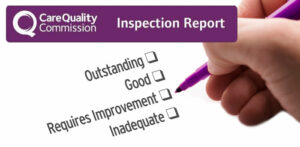There are many arguments for using digital care management software (DCMS) many of which are covered in a previous blog on this site, https://www.careis.net/umming-and-ahing-over-going-digital-2/, but what is managers should be looking for when considering digital care management software? This question might be quite a difficult one for managers who may be don’t have experience of using one, who are paper based and whose team does not contain someone who is IT savvy.
There are many digital care management software providers out there and all offer at their core the same product, but all make different and varying claims about their own product and how useful it will be for different social care service providers. In this blog we look at some of the questions the manager should ask when considering either a move from paper to a care management software or from one system to another.
 The first task the manager must undertake is to ask the question, what do I want from digital care management software? To inform their thinking about this, they might first look at a variety of care management software supplier website to better understand what is available. The list of wants and needs should reflect what is on offer and might be best split into those items which are essential and those which are desirable – much like a person specification when interviewing for staff.
The first task the manager must undertake is to ask the question, what do I want from digital care management software? To inform their thinking about this, they might first look at a variety of care management software supplier website to better understand what is available. The list of wants and needs should reflect what is on offer and might be best split into those items which are essential and those which are desirable – much like a person specification when interviewing for staff.
Savvy managers will involve staff in this process as they know that when it comes to adopting the digital care management software, the process of change is much easier if the staff feel some ownership of it. As a general overview the sorts of things on offer from the various software providers include:
Other providers also have additional software like rosters and time and attendance which help with some of the office functions. As a rule it is best not to adopt all of the software at once, rather to find a provider and start with something like their care planning module to ensure you get to grips with the way that works before considering more add ons.
Person-centred care planning dictates that you avoid any provider who offers readymade care plans. Local authority and CQC inspectors will not like these for good reason, they do not and cannot reflect the care needs of the individual service user. Look for a digital care management software system which allows a full and complete assessment of the needs of the service user, generates the ability to create include additional risk assessments as well as complete intervention plans which can be made to contain the sort of detail a new member of staff can look at and know what to do with.

Different managers will have different approaches to this, but consider do you want a system designed by people like you for people like you or do you want a system designed by software engineers? This will affect the choices you make, the feel of the system, how intuitive you think the system is and your relationship with the system long-term. User designed systems are more likely to work in ways in which care staff understand, while those designed by technicians may not.
Many managers are so taken by the care planning design, they forget that in terms of compliance and compliance monitoring, they need any digital care management software they use to generate useful monitoring reports. A well-designed system will include the sort of reports the manager needs to run the business of care as well as the business in general and might include:
Digital reporting not only saves time, because the system generates them, but they are accurate, real-time and can be accessed by other people like area managers, directors as well as being shared with regulators.
When looking at digital care management software, managers need also to consider that they are in it for the long-term, this means they need not only to like the system, but also the support available to them and their staff from the system providers. One way to know how good such support is would be to ask in the management forums on line and in person as well as looking at the various testimonials online. This is crucial for the success not only of the adoption of the digital care management software, but the use of the system long-term.
One cannot also ignore that the DHSC and CQC, https://www.cqc.org.uk/guidance-providers/adult-social-care/what-good-looks-digital-records-adult-social-care, push towards increased digitalisation in adult social care especially, include the desire that providers should be NHSX accredited. At this time this only applies to a few of the bigger providers, but managers should be alert to the fact that many small and medium sized companies are working towards this and may have the systems in place already.
 Moving to digital care management software is rewarding. I have done it a number of times in hospital, hospice and care home settings. the key has always been about the feel of the product and the relationship and communications with staff. What this means is that as well as considering the hard factors like the product offer, the manager is well advised to consider the softer elements of the move, like the intuitive feel of the product, the type of support they might get and the relationship they will form with the company over the long-term.
Moving to digital care management software is rewarding. I have done it a number of times in hospital, hospice and care home settings. the key has always been about the feel of the product and the relationship and communications with staff. What this means is that as well as considering the hard factors like the product offer, the manager is well advised to consider the softer elements of the move, like the intuitive feel of the product, the type of support they might get and the relationship they will form with the company over the long-term.
